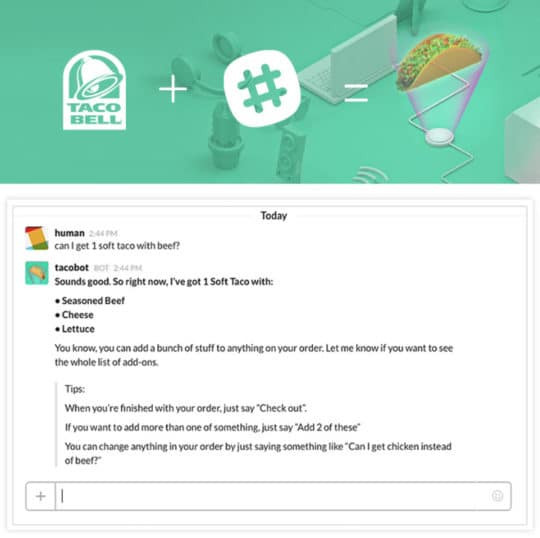Brightly colored newspaper ads; radio and TV commercials; fliers in our mailboxes; and, of course, billboards as we traveled the highways. All of these marketing methods are still around today, but more and more, the internet is our shopping mall and marketing smacks us on our screens everywhere we go – our home page, our email, our social media pages.
And once we purchase something from a “big-box” retailer like Amazon, we will find all sorts of purchasing suggestions when we return. And once we “surrender” our email address through a purchase? Our inbox fills up with deals, discounts, and new purchase possibilities.
Noisy and Somewhat Intrusive
All of this is content, along with sleek websites, blogs, videos, social media platforms, webinars, podcasts. Everyone who has something to sell wants to educate us, entertain us, inspire us and present their value propositions in engaging and compelling ways. And marketers want to develop relationships with us because we demand it if we are to trust their businesses. This has been content marketing during the early part of this century.
But we do feel a bit inundated, and content has been looking vastly similar, no matter the business – our tiny attention spans need something new.
So, what’s on board for 2018? A lot – because technology has given marketers new tools and methods for engaging consumers. And savvy marketers can take advantage of this new technology to engage their audiences in pretty amazing ways.
Here are seven content marketing trends for 2018 that will capture consumers’ attention.
1) Big Data/Data Science Will Reign
Big data. It’s “what’s up” for marketing. Analytics has been a big part of content marketing so far. It can tell marketers which of their content campaigns are the most successful in terms of ROI, and it drives their content decisions.

Now big data can tell marketers even more. It gathers information about consumers from everywhere, and the algorithms that data scientists have developed will sort that data, synthesize it, and answer vital questions that marketers pose about their target audiences.
Consider just the financial consumer loan industry, for example. Big data now tells lenders which specific demographics are looking for which types of loans; it provides the assessment of risk factors of specific borrowers; it even provides information on which seasons of the year are most popular for specific types of loans. And it provides all of this data in neatly packaged reports so that lenders can develop products that will be most appealing to their consumers.
Recommended for you: Content Marketing Tips: How to Earn High-Quality Links for Your Content.
2) Personalization
Personalization is already a big factor in marketing. Based on their previous activities, one consumer’s Amazon landing page will be markedly different from another’s. This is all based on each consumer’s previous browsing and purchasing activity on the site. But personalization has gone much further.
Geolocators tell the business where a previous customer is. Thus, Starbucks can determine when a customer is near one of its shops and “push” a special for him/her based on previous purchases.

“Personalization” can be for individuals or for groups of individuals. And it is more than simply placing targeted ads on their home and social media pages, or in their emails.
Red Roof Inn noticed that it received an uptick in reservations in its locations that were close to airports at specific times – when flights were canceled or seriously delayed. It developed an algorithm to provide alerts whenever flights were canceled or delayed. It then “pushed” out special rates, so that consumers looking for an overnight stay could easily reserve a room.
3) AR and VR Will Engage Consumers
These two phenomena have dominated the world of gaming. But smart content marketers see the possibilities and are already implementing them. Here are just a couple of examples.
A wine company wants to promote a more intimate relationship with consumers. On its label, it embeds its story – a story of how the grapes were grown, harvested and made into its wonderful wine. With a smartphone, any consumer can access this video and immediately has a more intimate relationship with the company.

A consumer is looking for a great vacation resort. Now, he can place himself in that resort and experience first-hand all of its amenities. What better way to explore options.
And how about being able to try on a piece of clothing before a customer makes a decision to purchase? It’s now a reality.
Content marketers will have to explore this technology to see if it is right for their brands. There is no point in jumping on a new shiny object unless it really works for a particular brand.
4) Virtual Assistants Will Be Invaluable
The Internet of things has brought us Amazon’s Alexa. And many other companies are exploring the use of personal assistants as consumer search for and consider product purchases. Siri is another example.
The technology is here. And 2018 will see more and more businesses using it to connect with their customers. Consider Tacobot, a personal assistant that will help customers place and enhance their orders, via an app. Here’s what placing an order looks like:
And when humor can be added to such content, all the better.
5) Global Reach and Localization
The world is a much smaller place because of the Internet. We order items from Chinese companies on a regular basis. And the websites of those companies have been “localized” through translation services, many of them now automated. As companies seek to expand their reach to a growing foreign consumer base, they will need to ensure that content which reaches those audiences is culturally appropriate and engaging. This will mean contracting with translators/translation services that have native connections.
You may also like: Marketing for Boring Industries: 3 Important Lessons to Learn From Insurance Companies.
6) Microinfluencers Will Become More Important
We all know that establishing trust is critical for sales. And more and more, consumers are placing their trust not in brand themselves but in other consumers who freely comment and provide feedback on products and services they have purchased. A poor online review can have a huge impact.
In the past, and even now, many large brands have relied on celebrity endorsements. Most of these are paid for, and the Federal Trade Commission has decided that this must be revealed. Marketers of large enterprises will still use celebrities, but content marketers for smaller companies actually have a better weapon.

Consumers trust other consumers more than they do celebrities. This is apparent all over social media, as they make recommendations for products and ask others for recommendations too. Micro influencers area ordinary consumers who have good things to say about a business’s products or services and share that good news with their communities.
This user-generated content will become more and more powerful as 2018 rolls forward.
7) Content Marketers Will Ask Themselves “Why?”
Content marketers are getting serious about the content they produce. In the past, content was rather random. It was produced for a variety of venues, hoping that some of it would “stick” and make an impression on a target audience. Not much was analyzed or documented.

This is now seen as inefficient and often a waste of time, energy and money. When content marketers consider a campaign, they will be asking themselves some strategic questions: What are we trying to achieve through this content? Who are we trying to reach and what are the characteristics and behaviors of these audiences? What do we want these receivers of our content to do?
Answering these questions first allows marketers to develop campaigns and strategies that will actually work. And, through the use of data analytics, they will know what is working and what is not.
A Final Word

Technology will not replace the content marketer. But it will give that marketer much better insight into the types of content a target audience wants, where that audience is, and how to capitalize on technology to achieve enterprise revenue goals. Stay tuned. Things are evolving rapidly.
This article is written by Dina Indelicato. Dino is a blogger enthusiast and freelance writer. She is always open to research about new topics and gain new experiences to share with her readers. Currently, she is a writer for Pick Writers. You can find her on Twitter.






